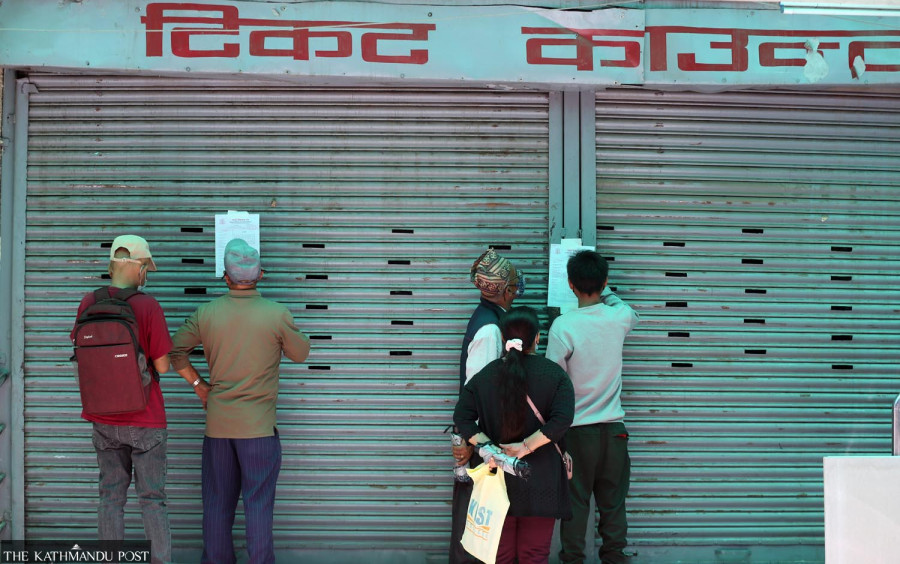Editorial
No, doctor
Shouldn’t the victims of medical negligence in Nepal have the right to seek legal redress?
On Monday, healthcare services across the country, except for emergencies, were disrupted as the Nepal Medical Council went on a strike in response to the Consumer Court’s recent verdicts. The court has imposed penalties on some doctors, citing negligence in treating patients, which in turn led to complications and even patient death. Moreover, three private hospitals in Kathmandu—Chabahil-based Om Hospital, Grande City Clinic and Himal Hospital—have been asked to pay heavy fines. Even on Sunday, health professionals had organised an hour-long sit-in at hospitals in protest against the verdicts.
Agitating doctors claim the imposition of exorbitant fines on them is unjust, arguing that they are oath-bound to work in the best interest of their patients at all times. They say rare incidents should not be used to tarnish the entire medical fraternity. These are valid points. They have nudged the prime minister to amend certain provisions of the National Penal Code Act-2017 and the Consumer Protection Act-2018. In their reckoning, the court’s strict interpretation of the ‘duty of care’ and harsh penalties foster fear and uncertainty. But isn’t the disruption of essential health services premature when the details of the verdicts are yet to be public?
The Nepal Medical Council, the umbrella body of medical doctors, is responsible for handling patients’ grievances, investigating and acting against its guilty members. But the council tends to delay probes and to unwittingly promote unaccountability. It is logical to argue that not every doctor is equally competent and malpractices happen in Nepal, just like they do anywhere else in the world. But the council often overlooks these concerns raised by aggrieved patients and consumer rights activists. Given this, the Consumer Court—which came into effect on March 15 this year—has become a vital platform to seek legal recourse. In the cases in which the Consumer Court recently issued the verdicts, the council’s investigations had also uncovered negligence on the part of doctors.
When something goes wrong, families of patients often resort to vandalism at hospitals and manhandling, assault and threats against health professionals. In this regard, the doctors are right to feel a little unsafe. They have long demanded safety and fair pay. In April, they shunned non-emergency services at healthcare institutions before demanding that private medical colleges provide stipends to resident doctors, equal to those provided to government-owned colleges. Even as their concerns over safety are valid, essential services also cannot be routinely disrupted. Holding the general public’s right to treatment hostage is unconstitutional too, subject to up to three years of prison or a fine of Rs30,000 as per the country’s National Penal (Code) Act.
The medical professionals must also respect patients and their relatives’ right to seek legal recourse if they feel harmed. For their part, the medical professionals can also appeal against the Consumer Court’s verdicts in the High Court and the Supreme Court. Why always resort to punishing patients? Members of all professions are obligated to honour their side of the bargain with customers—and they are legally punished when they fail to do so. The same should apply to doctors and nurses.




 10.12°C Kathmandu
10.12°C Kathmandu













